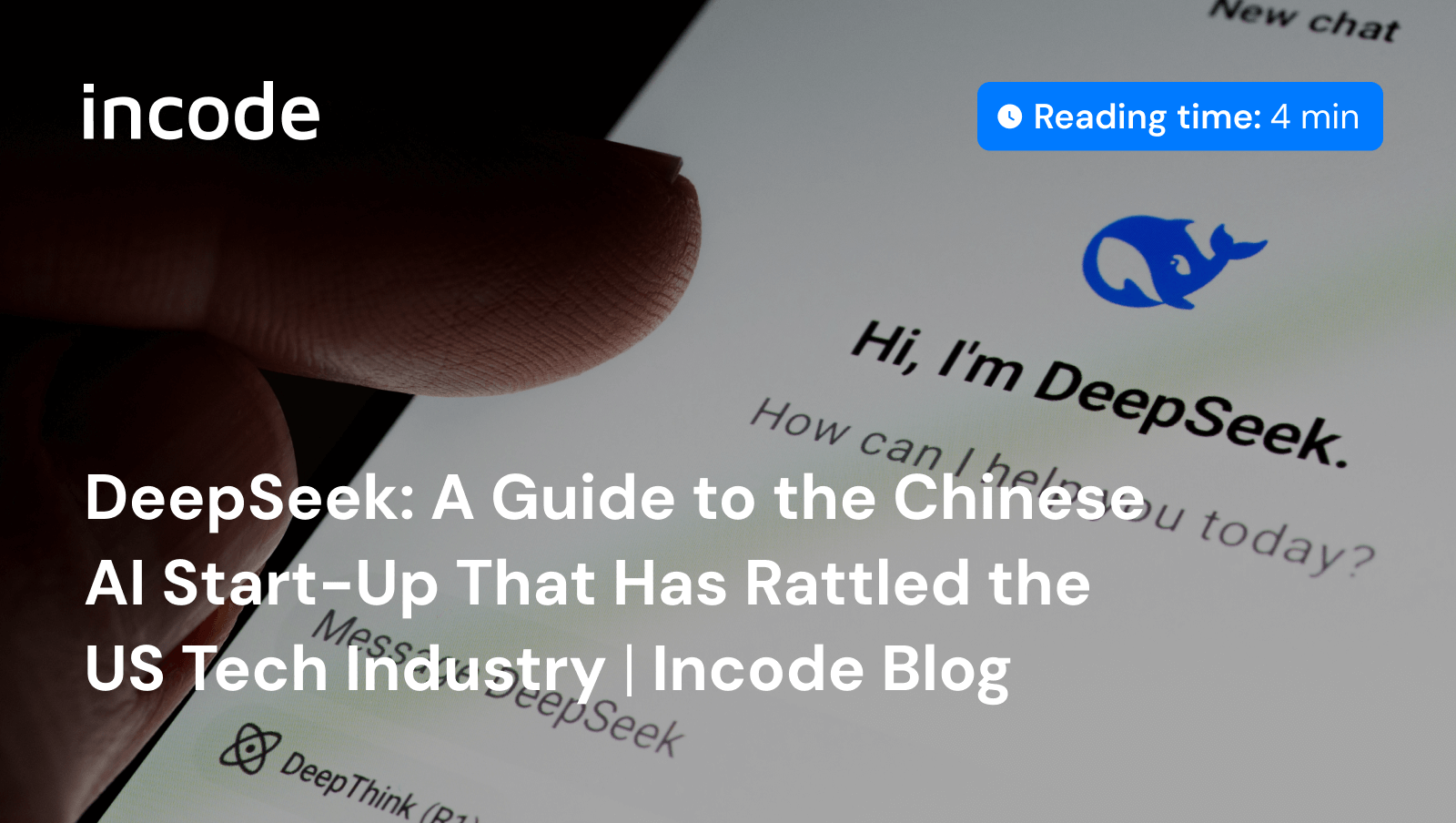DeepSeek: A Guide to the Chinese AI Start-Up That Has Rattled the US Tech Industry
DeepSeek upended the US stock market when it released a new AI-powered chatbot last month. What do we know about DeepSeek? Why has its latest release been referred to as “AI’s sputnik moment”?
What is DeepSeek?
DeepSeek is a small Chinese start-up —it employs just 200 people— that was mostly unknown until it sent US tech stocks plummeting last month. Founded in late 2023 by entrepreneur Liang Wenfeng and based in Hangzhou, the company focuses on building new AI technologies and recently released its AI-powered chatbot, DeepSeek-R1.
Why is everyone talking about DeepSeek all of a sudden?
DeepSeek-R1 has rattled the US tech industry because it cost significantly less money to build than most experts thought possible, despite being just as powerful as many AI systems built in the US. It rivals Silicon Valley’s top players such as Google and OpenAI, creators of Gemini and ChatGPT, and it quickly overtook the latter as the most downloaded free iOS app in the US towards the end of January.

Fewer GPU chips = fewer dollars
AI-powered chatbots analyze data and look for patterns. To do this efficiently, they rely on specialized computer chips called graphics processing units (GPUs), which can simultaneously perform large numbers of calculations.
It was previously understood that you needed about 16,000 GPU chips to build a powerful AI system. However, DeepSeek has demonstrated that you can build a similar system with only 2000 GPU chips.
This has upended the US tech industry, challenging the assumption that it takes billions of dollars to be at the forefront of AI. DeepSeek-R1’s development team has said they spent less than $6m on computing power to train their model, a fraction of what US companies spend. ChatGPT-4 reportedly cost $100m to train.
The BBC reports that “DeepSeek claims to have achieved this by deploying several technical strategies that reduced both the amount of computation time required to train its model and the amount of memory needed to store it.”
Nvidia’s market value plummets
As a result, Nvidia—the US company that produces the leading GPU chips for AI—lost nearly $600bn in market value in one day, a new record for the US stock market. Marc Andreessen, who sits on the board of Meta and whose venture firm is invested in Meta and OpenAI, has referred to the release of DeepSeek-R1 as “AI’s sputnik moment.”
In October 2022, President Biden’s administration imposed export controls that limited Nvidia and other companies’ sales of advanced AI chips to countries including China, Russia, and Iran. This attempt to block these countries from making significant progress in AI development was due to “national security concerns.”
The chips used to build DeepSeek-R1 —Nvidia H800 GPUs— had been designed to comply with the government’s export controls and were available to China until the US ordered an immediate ban on exporting H800 GPUs in October 2023. However, it’s been reported that DeepSeek had stockpiled 10,000 chips before the ban.

The path to more sustainable AI
By proving that powerful AI systems can be built with fewer chips, the release of DeepSeek-R1 could pave the way for AI models with reduced environmental impact. Fewer chips mean lower energy consumption.
What’s next?
A new competitor has entered the ring: a relatively small, two-year-old start-up has taken on the biggest tech giants in the world and proved that a powerful AI system doesn’t have to cost billions to train.
This could result in smaller companies following suit, driving innovation and leading to faster advancements. Investors may direct more resources toward AI development as the battle to stay ahead of the competition intensifies. OpenAI CEO Sam Altman said that “It’s legit invigorating to have a new competitor!”
The revelation that powerful AI systems can be built to consume less energy will hopefully push companies to explore more sustainable solutions.
Discover how we leverage artifical intelligence and machine learning to verify identity and block 99% of spoofing attempts.
